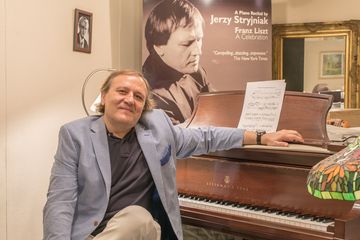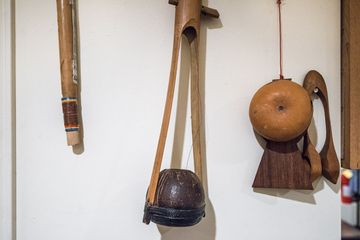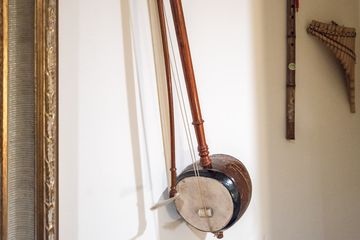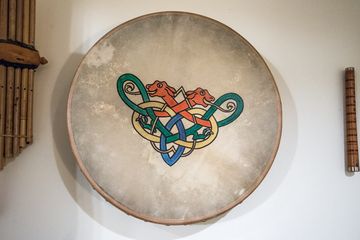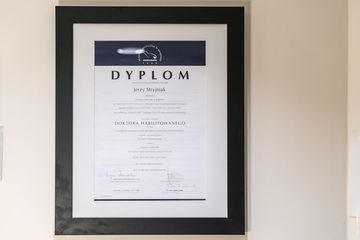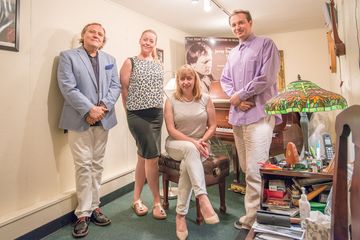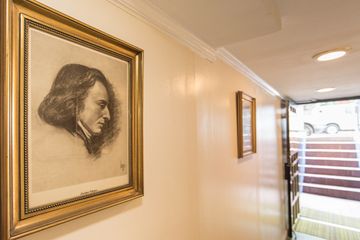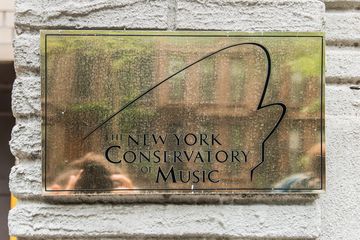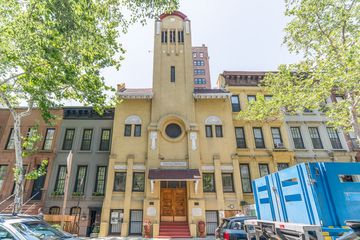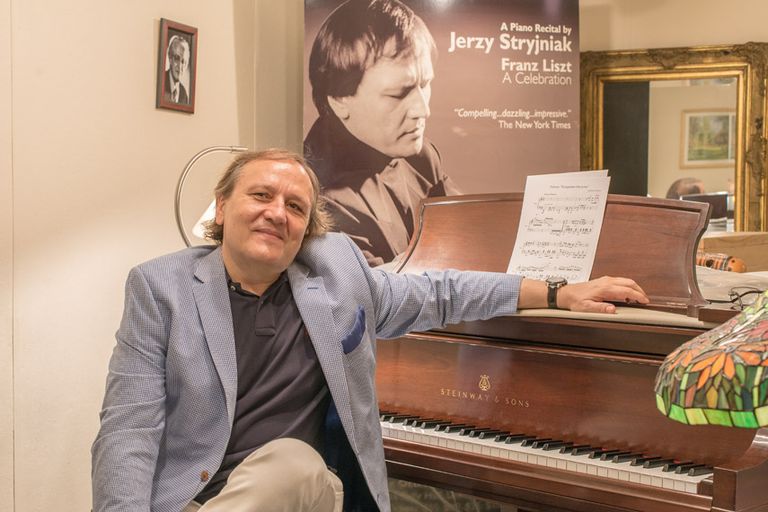
Jerzy and Joanna Stryjniak, the founders of the New York Conservatory of Music, recited their story to me like an oft-told children's fairytale. Jerzy made his first trip to the United States in January 1990. He had been dreaming of escaping Communist Poland for years, especially since receiving a Fulbright scholarship in 1983 that he was not allowed to use, and so the trip meant a lot more to the pianist than a holiday jaunt. He was invited to play at a special piano concert in Palm Beach, Florida, presided over by George H.W. Bush and Jackie Kennedy Onassis. Just six months later, Jerzy made his debut at Carnegie Hall. The acclaimed pianist pointed to the review from the New York Times that he still has hanging above his desk, which he claimed was the best review of the season.
Jerzy had a refreshingly matter-of-fact way of listing his accomplishments that was as far from bragging as the recipients of multiple accolades can get. He went on to let me know that he was invited back in November of that same year to play for the centennial of Carnegie Hall. He reached behind the desk and graciously handed me a CD of his performance. "That was the beginning of my stay in New York." And it was a very happy start to a successful career: Jerzy has played in Carnegie Hall ten times since 1990.
Jerzy and Joanna, who is a musicologist and teaches music theory at the conservatory, began the New York Conservatory of Music in 1998. It was an enormous investment, which involved building soundproof walls and fitting the practice rooms with pianos. Jerzy considers it very important to have high-quality pianos: he pointed out a Steinway Model B to me in one of the front practice rooms.
Joanna informed me that, without a doubt, the main element that sets the Conservatory apart from other music schools is the level of teaching. All of their staff are professional, musically-educated concert instrumentalists. Each lays claim to high-level music degrees and does not have jobs on the side. Jerzy, himself, may have the highest level degree of any musician in the area. He is a "Doctor of Habilitation," a degree above a PhD that is not offered in the United States. He explained, "My friends say I'm the most educated pianist in New York!"
The other instructors are no less impressive. I met Jacob, who Jerzy described as a "world famous composer." Along with instructing students, Jacob, who studied under the famous composer Krzysztof Penderecki, has been writing fully-realized pieces for some of his pupils to play. "This is absolutely new for New York," Jerzy asserted. "Nowhere else is a piece composed especially for you." Jacob is also working on interactive programs for children through which he will help young students explore well-known fairy tales using music. As if that did not already sound like a lot on his plate, Jacob is also responsible for starting the Chamber Music ensembles at the Conservatory.
Jerzy estimated that one thousand students have been members of the Conservatory since it opened its doors. Joanna chimed in with "more than one thousand!" I was most impressed, however, when she told me that a good thirty percent of the school's pupils are adults, and went on to share with me that every month, there is a special night where grown students can come together, have a light refreshment, and network. Jerzy was happy to point out that while some of those students are non-musical professionals, such as doctors or lawyers, who wish to add music back into their lives, many have been with the Conservatory since the start. Jerzy and Joanna offer them many resources including lectures on composers, theory classes, trips to Europe, and even the opportunity to play on extraordinary stages including Carnegie Hall and Steinway Hall. But it all comes back to the quality of teaching: As Jerzy expounded, "Six months after we tell them, 'this is middle C,' some of our students are able to play Chopin in a famous concert hall."
